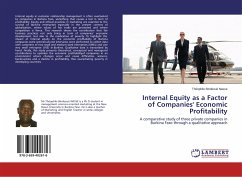The impact of work motivation on productivity, absenteeism, attrition, organizational culture has been well articulated by the behavioral scientists. There is a vast literature developed by western management thinkers. In Indian organizations, managements are grappling with the problem of employee motivation. They want to understand the factors which lead to motivated behavior of the employees. They follow the prescription of behavioral scientists like sensitivity training and host of other fads, but employees don t get motivated. In Indian economy the role of unorganized sector is great. Nearly 90% of workforce of the economy is employed in this sector. This is the sector in which there are no job guarantees, no social security benefits like PF, ESI for the employees, and who they never enter on the permanent rolls of the organization. This workforce constitutes the backbone of Indian economy. In the field of research this workforce has been totally neglected. There is a need tounderstand the motivation factors of this workforce. An investigation replicating the dual factor study of Professor Herzberg has been made and the findings are reported in this book.
Bitte wählen Sie Ihr Anliegen aus.
Rechnungen
Retourenschein anfordern
Bestellstatus
Storno








